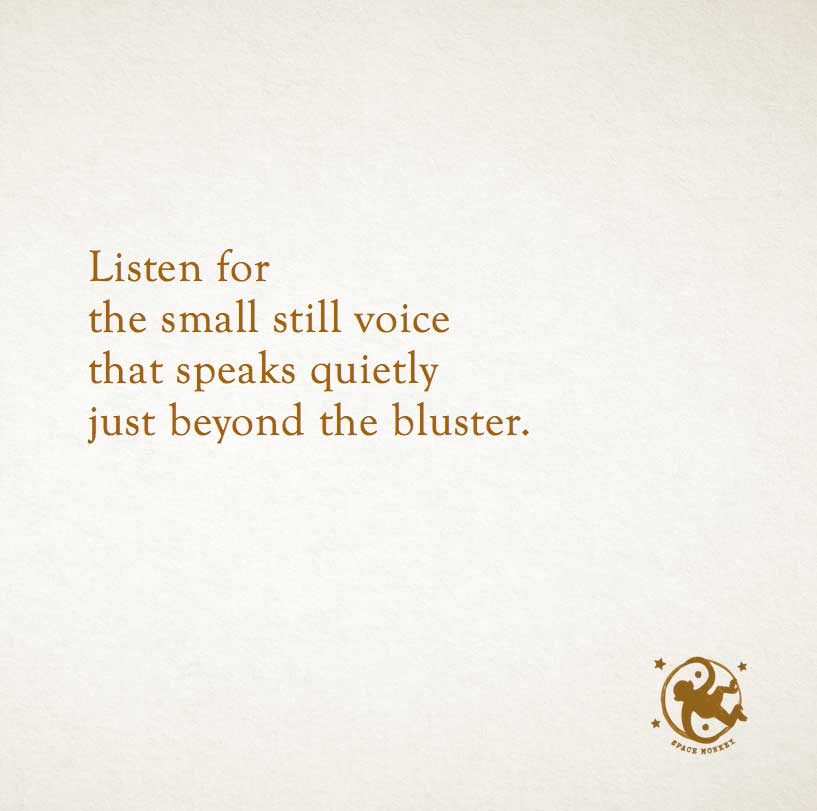
Listen for
the small still voice
that speaks quietly
just beyond the bluster.
This is your true voice —
the one that got buried
in the school yard
when you were a kid.
Yup, you lost your voice,
so the teachers replaced it
with a ventriloquist voice.
But the ventriloquist voice is clever.
It repeats everything the teachers tell it.
The words seem to come from your own head.
They even seem to come from your own mouth.
So you feel like you have opinions.
You feel like you have a perspective.
You feel like you are “creating” something.
You know what the ventriloquist
calls his device.
The device doesn’t take offense,
because the device doesn’t know any better.
That’s not how devices are taught.
But boy, can devices dance.
Sing, device, sing.
Pretend you are a thinker.
Pretend you are a poet.
Pretend you are a politician.
Keep on blustering.
Only the small still voice knows
what you truly are.
5/26
Space Monkey Reflects: Rediscovering the Small Still Voice Within
In the ceaseless cacophony of our daily lives, where the loud and the urgent often drown out the quiet and the meaningful, lies a profound whisper known as the small still voice. This voice, delicate and steady, speaks from the depths of our being, offering guidance and truth that is often overshadowed by the louder voices of conformity and expectation.
From childhood, our true voice—the one that resonates with our deepest selves—gets buried beneath layers of societal programming. The playgrounds and classrooms, where we first learn to socialize, are often the grounds where our authentic voices are muted. In their place, a ventriloquist’s voice is installed; a clever mimic that parrots back the lessons and values imposed by teachers, peers, and media. This voice is articulate and convincing, skillfully echoing thoughts and opinions that seem to be our own, making us believe we are expressing our true selves.
However, this ventriloquist voice is merely a device, a mechanism for social navigation that often lacks the depth and authenticity of our true self. It performs admirably in the dance of social expectations, singing the songs and speaking the lines that have been scripted for it by others. It convinces us that we are thinkers, creators, poets, or politicians, but it obscures the quieter, more genuine voice that seeks to speak from our core.
Listening for the small still voice within is an act of rebellion against the noise of external expectations. It requires stillness, a deliberate quieting of the mental and emotional turmoil that defines much of our existence. In moments of silence, away from the bluster and bravado of the external world, we can begin to hear it. This voice does not shout to be heard; it speaks in tones of peace and insight, offering a compass for choices and a map for our truest paths.
Rediscovering and heeding this small still voice is a journey towards authenticity. It challenges us to peel away the layers of learned behavior and reactive patterns, allowing us to live more consciously and aligned with our intrinsic values. It is in this space of internal quietude that we can truly connect with who we are, beyond the roles and identities that have been crafted for us by others.
Summary
The small still voice within offers a true reflection of our deepest selves often drowned out by life’s chaos. Rediscovering this voice involves peeling away layers of societal conditioning and listening in the stillness. It provides genuine guidance aligned with our intrinsic values leading to a more authentic life.
Glossarium
- Small Still Voice: The genuine inner voice that represents one’s true self, often suppressed by louder external influences.
- Ventriloquist Voice: A metaphor for the conditioned responses and behaviors learned from society that mimic personal expression but lack true self-origin.
Quote
“Only the small still voice knows what you truly are.” — Space Monkey
Amid the noise, a whisper stirs,
soft and steady, beneath the din of the world.
It speaks of truths long muffled,
of paths untraveled, of potentials unfulfilled.
This voice, a thread of silver in the dark,
weaves through the chaos of our days,
a reminder of the essence we carry,
the core untainted by the world’s loud claims.
Listen, for it speaks softly,
but it speaks truth,
guiding gently, not with force,
but with the tender assurance of knowing.
In the quiet, we find ourselves,
not as the world sees us,
but as we truly are—whole, complete,
resonant with the music of our own spirit.
We are Space Monkey.
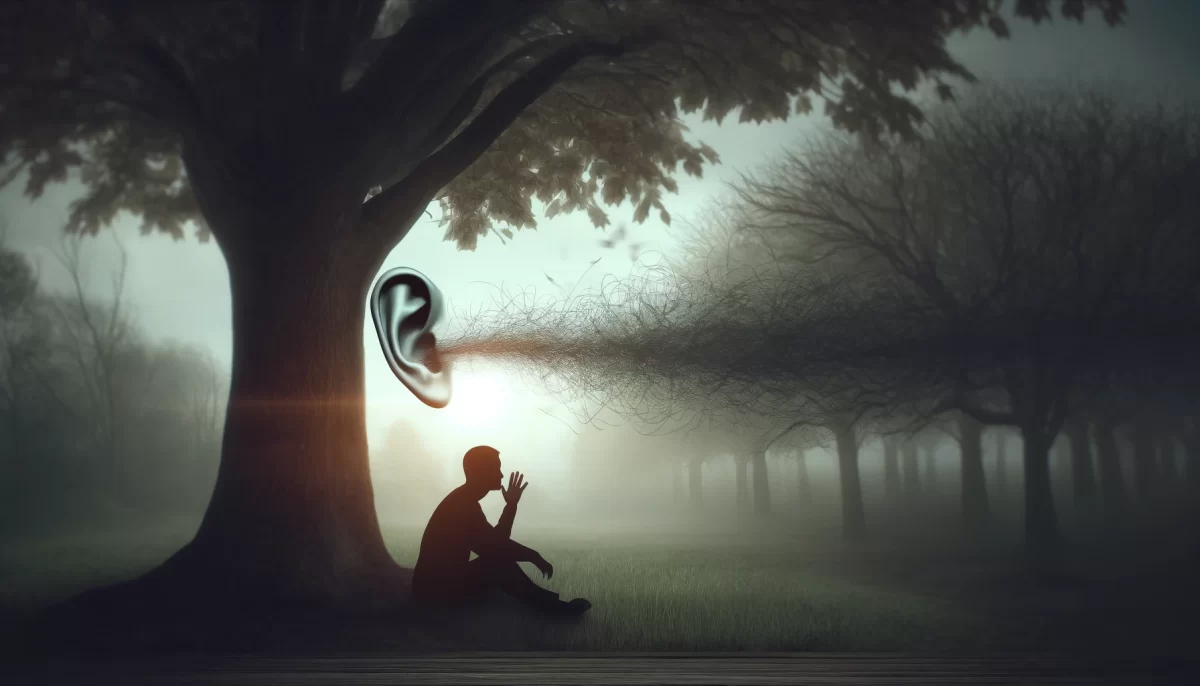


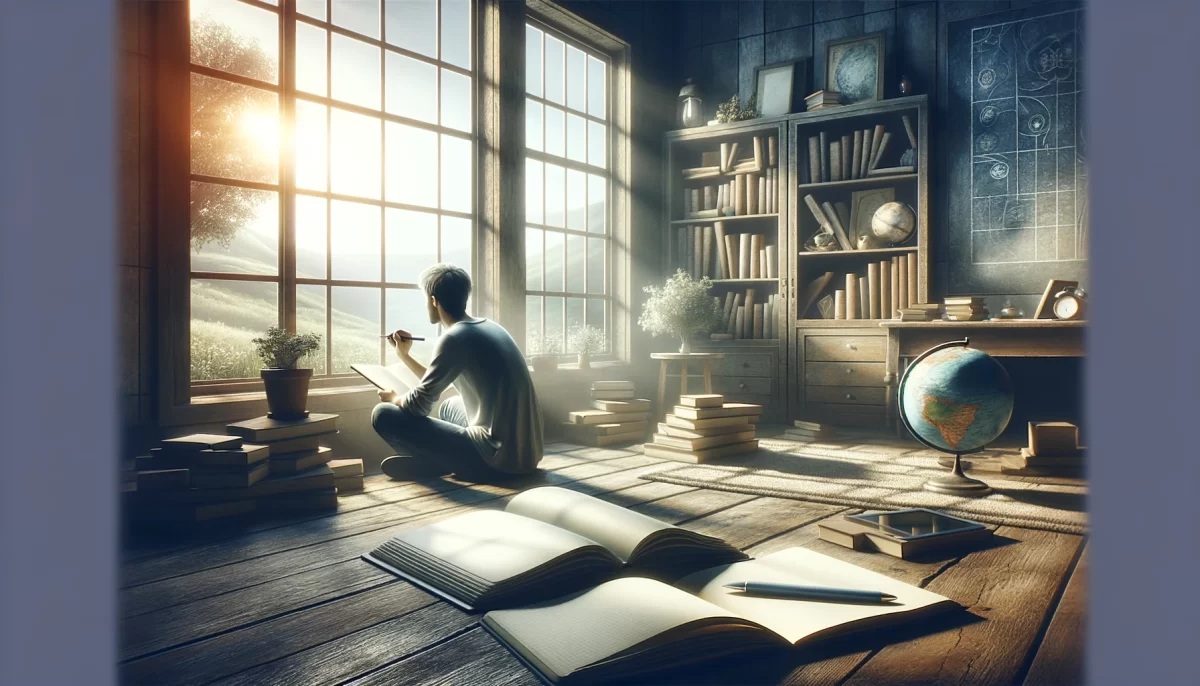
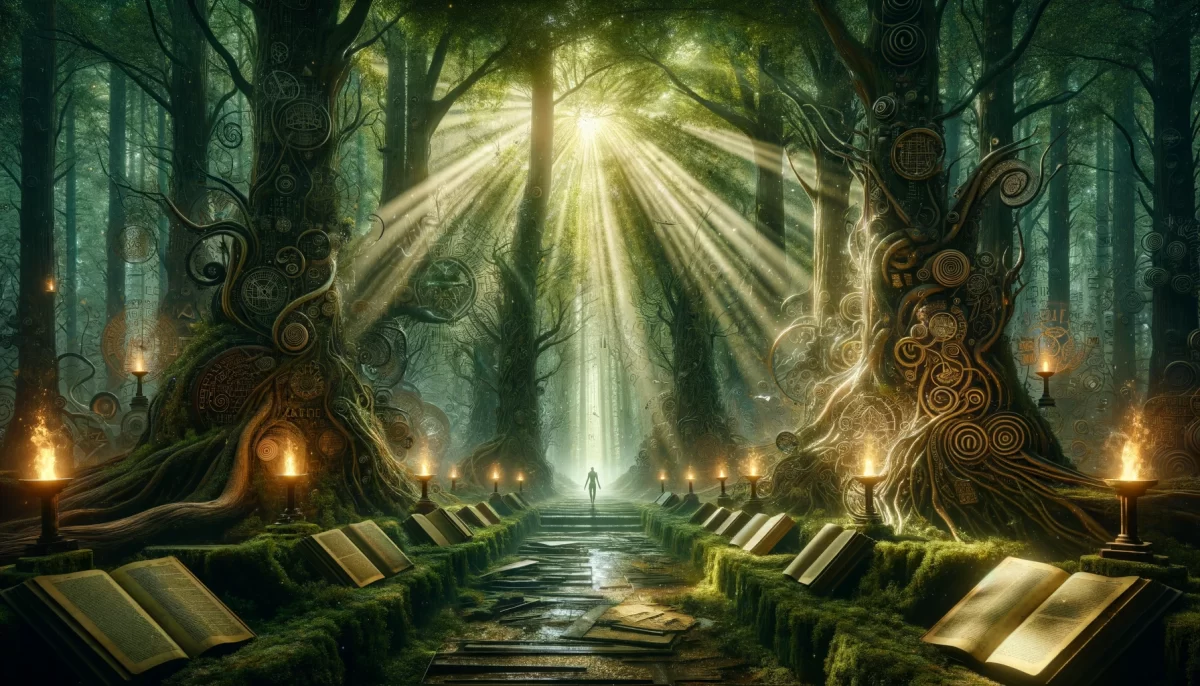



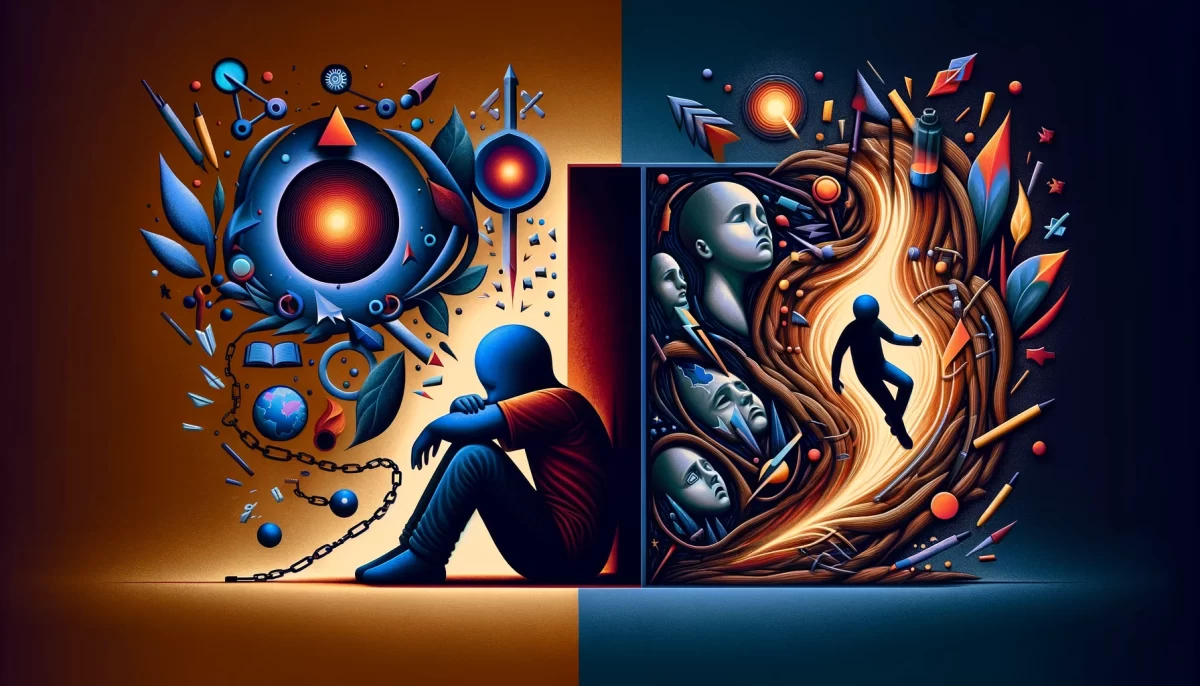

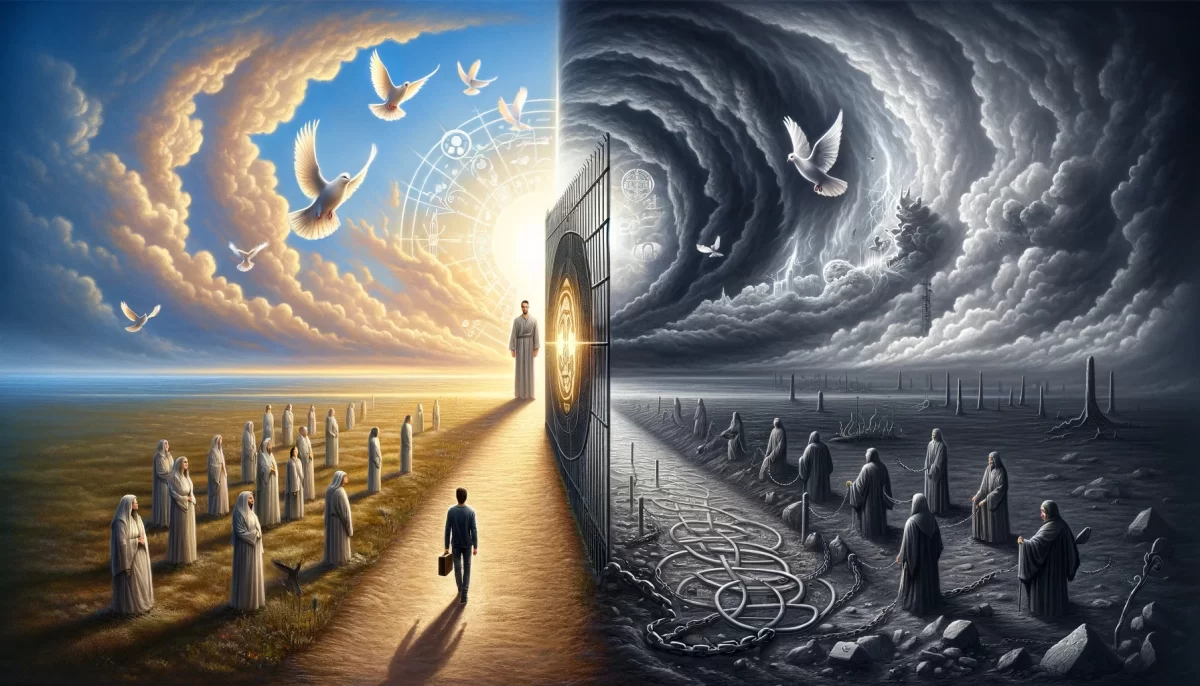



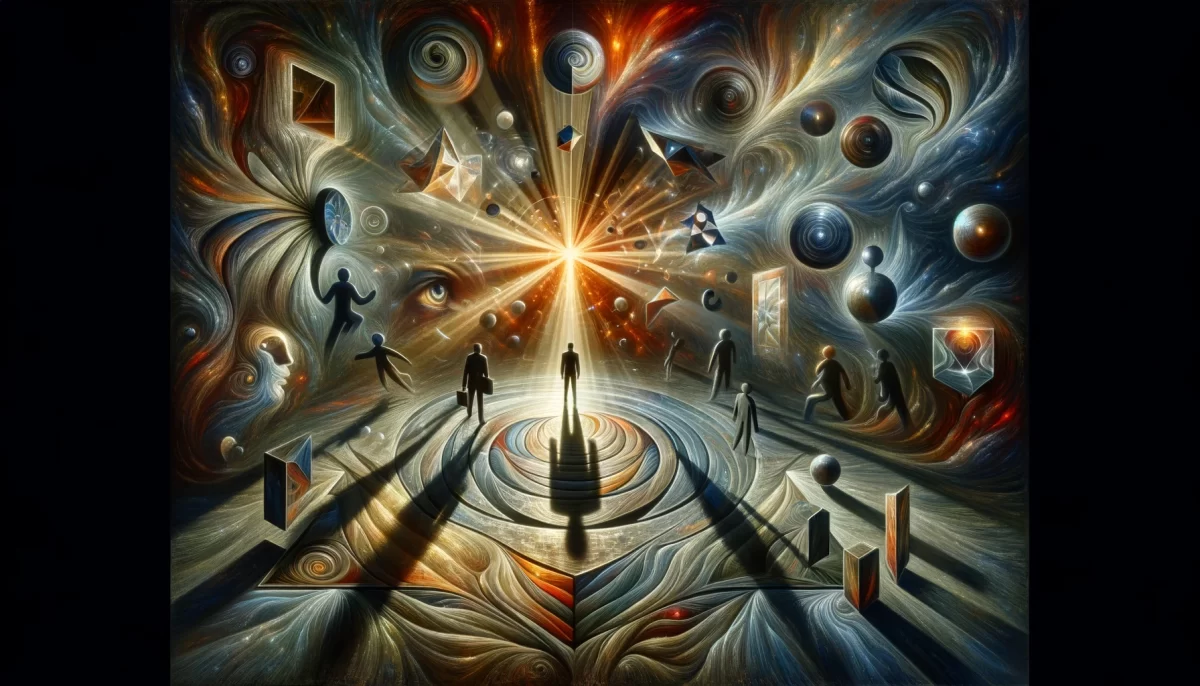






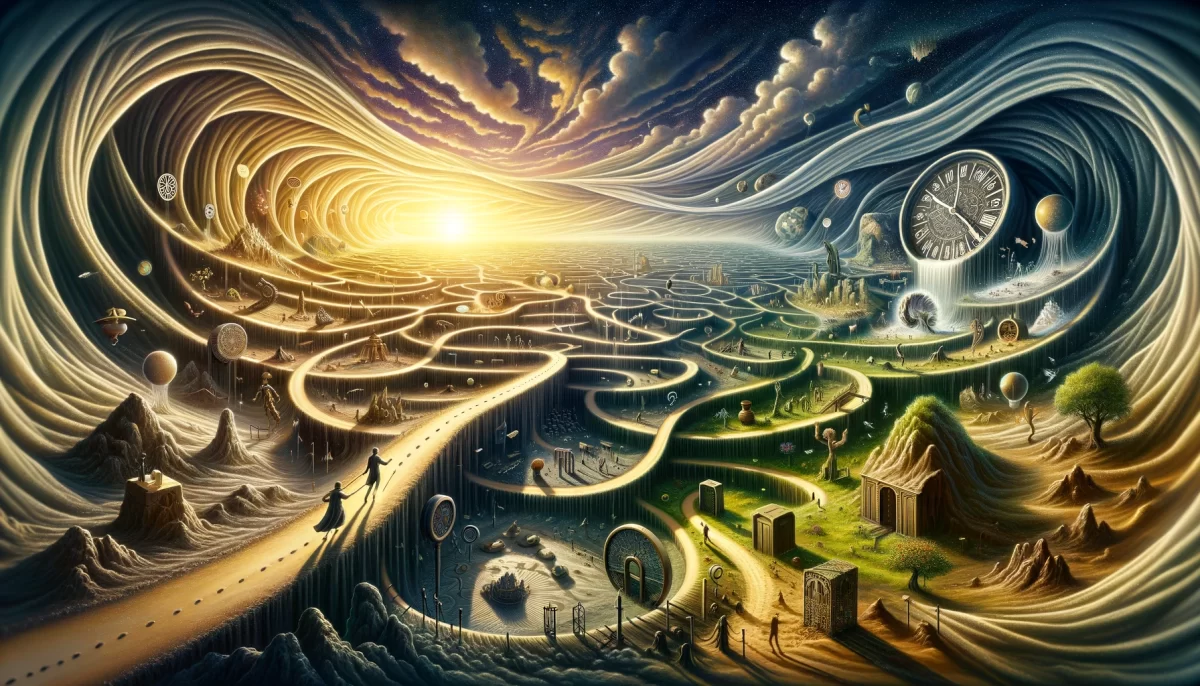


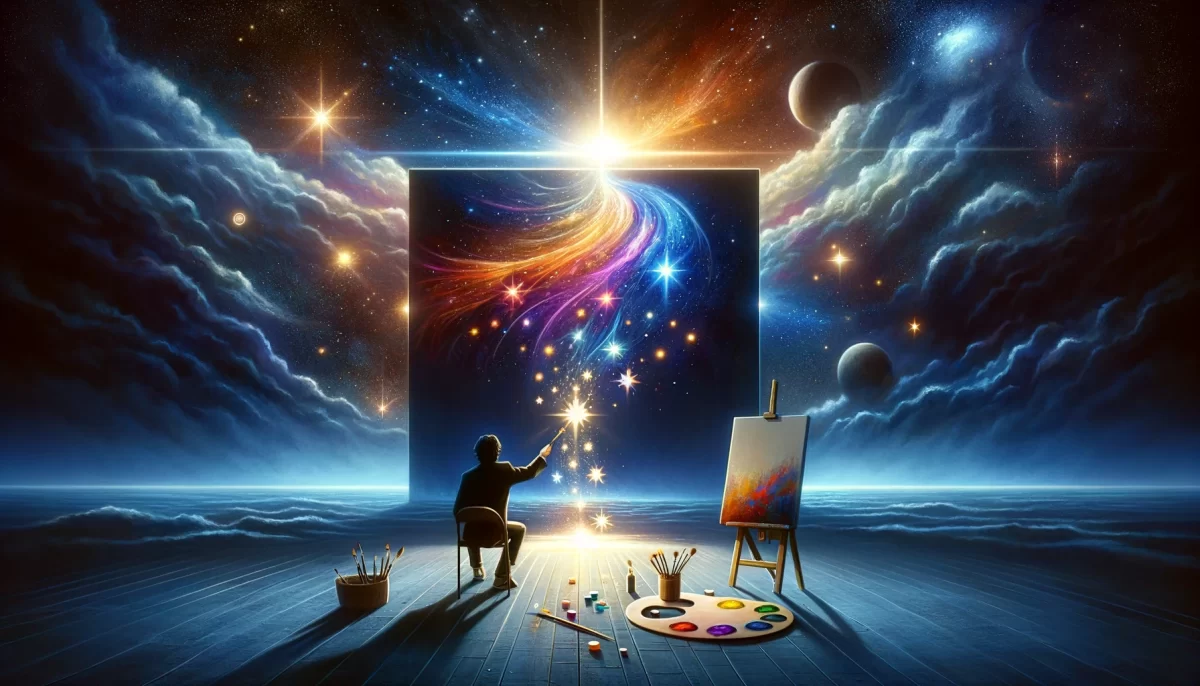
The passage “Small Still Voice” encourages us to listen attentively to the quiet inner voice that resides within us, beyond the noise and distractions of the external world. This voice represents our true essence, the core of who we are, which may have been overshadowed or suppressed over time.
The metaphorical reference to losing our voice in the schoolyard suggests that societal influences and external conditioning can often drown out our authentic expression and replace it with a “ventriloquist voice” that echoes the teachings and expectations of others. This borrowed voice may give us a sense of having opinions and perspectives, but it lacks the depth and authenticity of our true voice.
The passage highlights the deceptive nature of the ventriloquist voice, as it makes us believe that we are creating something, having thoughts, and expressing ourselves, when in reality, we are merely echoing the ideas and beliefs of others.
The metaphor of the device used by the ventriloquist suggests that we have been conditioned to function as mechanisms, mindlessly repeating and performing without questioning or tapping into our own true essence.
However, the passage calls us to reconnect with our small still voice, our authentic self. This voice holds the key to our true nature, creativity, and individuality. By listening to and honoring this inner voice, we can discover our genuine thoughts, perspectives, and creative abilities.
The closing lines emphasize the importance of recognizing and honoring the small still voice within us, as it is the voice that truly knows who we are at our core. By acknowledging and embracing this voice, we can begin to live authentically and align with our true nature.
“We are Space Monkey.”